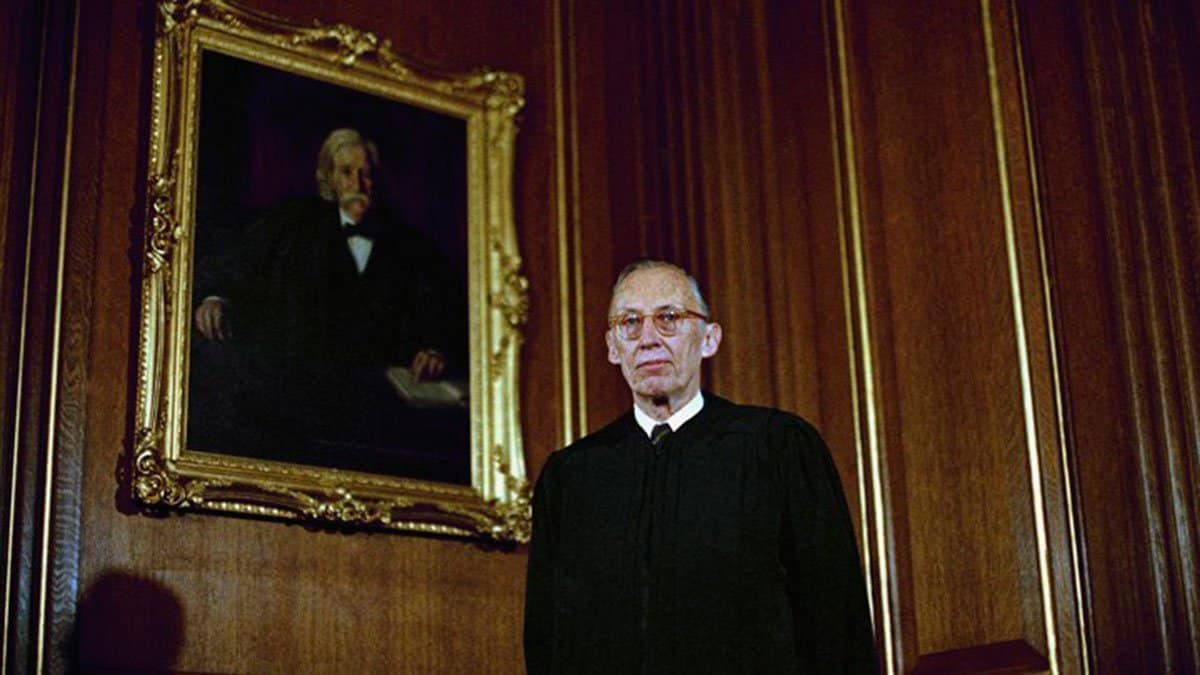
Andrew Strom is a union lawyer based in New York City. He is also an adjunct professor at Brooklyn Law School.
If you don’t know about the Powell Memo, you should. And, if you’ve heard of it, but haven’t read it, you ought to read it. The Powell Memo, written in 1971 by future Supreme Court Justice Lewis Powell to the Chairman of the Education Committee of the U.S. Chamber of Commerce, has probably influenced the course of American legal history more than any law review article or book written in the last half century. Before the memo, the Chamber of Commerce rarely filed amicus briefs in the Supreme Court, the Federalist Society did not exist, nor did the web of well-funded think tanks that advocate for a pro-corporate agenda. And, I think it’s fair to say that the Powell Memo was the catalyst for all of these developments. But, perhaps the most surprising thing about the Memo is that Powell recognized that unions and collective bargaining are necessary components in any free enterprise system.
In the Memo, Powell, then a corporate lawyer, argued that what he calls the “American economic system” was under attack. He complained about the media attacking tax credits as “tax breaks” or “loopholes,” he complained about favorable press coverage of Ralph Nader’s attacks on unsafe products, and he described universities as “waging ideological warfare against the enterprise system.” Powell argued that “bright young men” were learning to distrust and despise the free enterprise system, and then getting jobs in the news media, in government, in elective politics, as writers, and on the faculties in high schools and universities.
In response, Powell suggested that the Chamber of Commerce should develop its own staff of scholars, it should insist on equal time on the college speaking circuit, it should demand “balance” on college faculties, it should develop programs tailored to high schools, and it should insist that talk shows feature pro-corporate guests. In addition, Powell urged the Chamber to promote scholarly articles, books and pamphlets, and paid advertisements “to inform and enlighten the American people.”
Perhaps most significantly, Powell observed that “[u]nder our constitutional system … the judiciary may be the most important instrument for social, economic and political change.” Powell noted that the ACLU was initiating or intervening in scores of cases each year, including filing amicus briefs at the Supreme Court. Powell urged the Chamber to do the same. Looking back almost fifty years later, his assertion that “the opportunity merits the necessary effort” was a remarkable understatement. According to the Constitutional Accountability Center, in the 2017-18 Supreme Court term, the Chamber of Commerce filed briefs in ten cases, and won nine of those. Since 2006, the Court has ruled on the Chamber’s side in 70% of the cases where the Chamber has filed briefs.
It seems safe to say that without the Powell Memo, we wouldn’t have Citizens United or Janus, or a White House that outsources judicial appointments to the Federalist Society. But, the terms of the debate have moved so far since Powell wrote his memo that it’s almost shocking to see what Powell actually had to say about labor unions. The memo displays none of the hostility toward unions that is so common on the right today. Instead, Powell recognizes the important role played by unions in any free society. He ends his memo with a note of optimism, observing that while there had already been some impairment of freedom, “most of the essential freedoms remain.” Here is his list of those freedoms: “private ownership, private profit, labor unions, collective bargaining, consumer choice, and a market economy in which competition largely determines price, quality and variety of the goods and services provided the consumer.”
In 1970, more than one-quarter of workers in the U.S. were represented by unions, and union membership was as strong in the private sector as the public sector. Today, only 11% of workers are represented by unions, and in the private sector less than 7% of workers have union representation. Powell may have advocated for less regulation of business, but he understood that workers are not free if they can’t band together to form unions, and that labor unions play a constructive role in acting as a check on corporate power. It’s too bad that thanks to Powell there is now a seemingly endless supply of “bright young men” and women who worship free enterprise, but who somehow never learned these important lessons.






Daily News & Commentary
Start your day with our roundup of the latest labor developments. See all
February 24
In today’s news and commentary, the NLRB uses the Obama-era Browning-Ferris standard, a fired National Park ranger sues the Department of Interior and the National Park Service, the NLRB closes out Amazon’s labor dispute on Staten Island, and OIRA signals changes to the Biden-era independent contractor rule. The NLRB ruled that Browning-Ferris Industries jointly employed […]
February 23
In today’s news and commentary, the Trump administration proposes a rule limiting employment authorization for asylum seekers and Matt Bruenig introduces a new LLM tool analyzing employer rules under Stericycle. Law360 reports that the Trump administration proposed a rule on Friday that would change the employment authorization process for asylum seekers. Under the proposed rule, […]
February 22
A petition for certiorari in Bivens v. Zep, New York nurses end their historic six-week-strike, and Professor Block argues for just cause protections in New York City.
February 20
An analysis of the Board's decisions since regaining a quorum; 5th Circuit dissent criticizes Wright Line, Thryv.
February 19
Union membership increases slightly; Washington farmworker bill fails to make it out of committee; and unions in Argentina are on strike protesting President Milei’s labor reform bill.
February 18
A ruling against forced labor in CO prisons; business coalition lacks standing to challenge captive audience ban; labor unions to participate in rent strike in MN